Don’t let these common myths steal your sunshine, going solar can be a great addition to your home or business
Plus government incentives and industry innovation have made solar panels more accessible than ever to American homeowners. Clean energy consumers have options and Enact is here to help homes and businesses get custom solar designs.
However, there are many myths surrounding solar systems that keep consumers from making informed decisions. Solar panels have been around since the 1970s and have changed a lot. Some myths keep homeowners from making serious decisions about their energy options.
10 debunked myths about solar panels
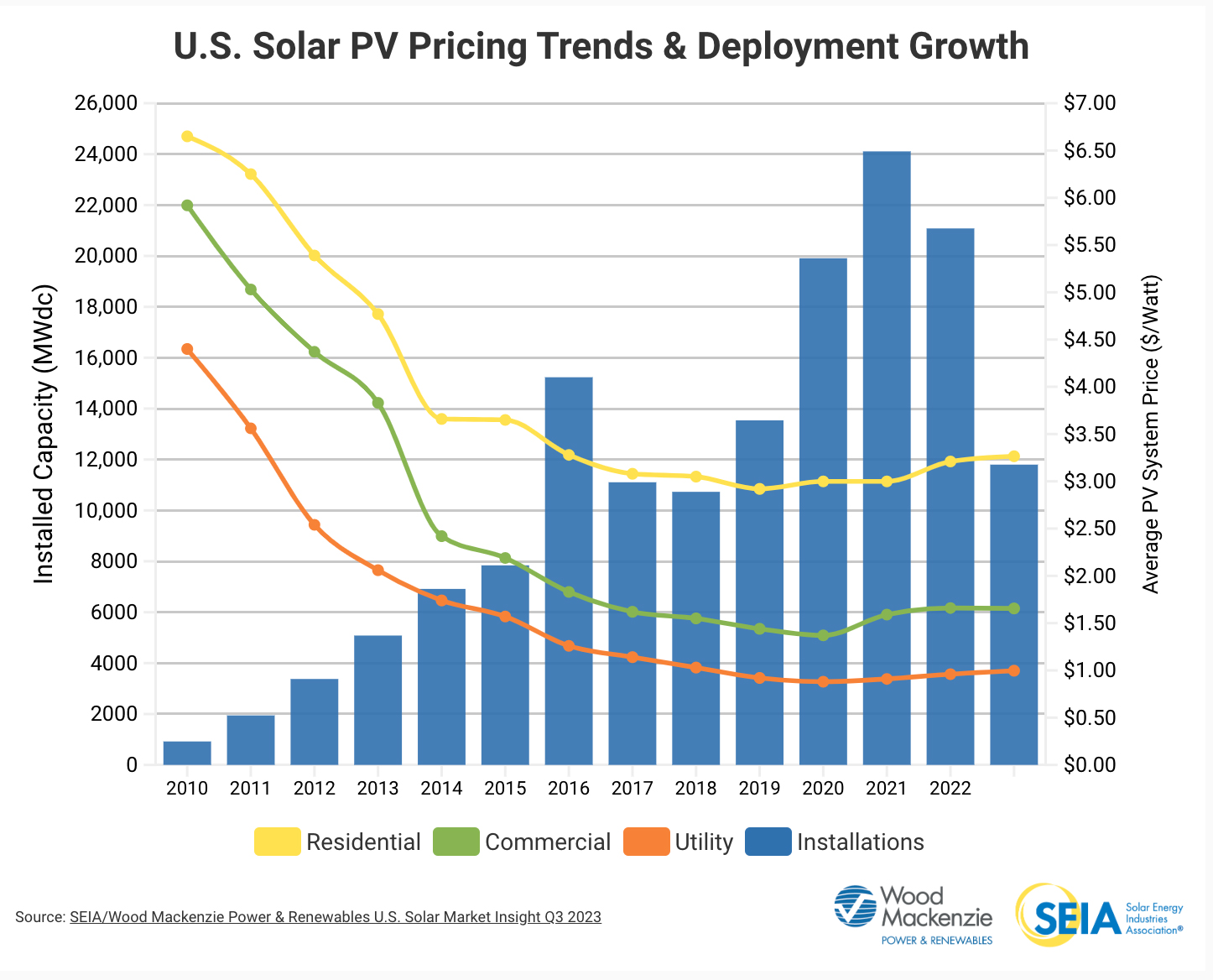
MYTH: Going solar is expensive
While you can pay for solar upfront, there are many financing options available. Solar can still be worth the investment, if the loan payments are cheaper than your current electricity bill.
Additionally, solar panels can pay for themselves overtime by reducing your monthly utility bills. A good solar system may be an investment, but like an investment — solar can have a return on investment.
Government incentives help alleviate the financial cost of going solar through the federal Investment Tax Credit program. Some states and local governments offer additional incentives, such as tax credits and rebates. There are even low-income programs available for clean energy.
MYTH: Solar panels don’t last long and are bad for the environment
Solar panels are made to be durable and are protected with a thick layer of tempered glass. This shields panels from rain, snow, hail or wind damage. Innovation has improved solar technology so even as efficiency decreases over time, your home will still see clean energy.
In recent years, there’s been a concern regarding the environmental sustainability of producing clean energy equipment. We know solar panels do not produce air pollution when operating and have a positive impact on the environment.
Despite the production of solar technologies being reliant on fossil fuels, the energy it requires to produce solar technology is less than the energy solar panels produce over their lifetime. There are also solar panel recycling options for homeowners.
MYTH: Solar energy is not efficient
Modern solar panels can convert sunlight into electricity with an efficiency ranging from 17% to 20%, depending on the type and quality of the panels. This number might seem low, but remember solar panels can only process certain wavelengths of light, with the remainder being reflected off the panel.
Factors such as weather conditions, panel orientation and maintenance can influence overall efficiency. But the continuous development of technology has significantly increased the efficiency and reliability of residential systems. These systems have become a cost-effective and environmentally friendly solution for many homeowners seeking to reduce energy costs and decrease their carbon footprint.
MYTH: Solar panels can power your home in an outage
When the power goes out, due to extreme weather or accidents, your system inverter will switch off. This is to protect utility technicians who need to act quickly and operate on electrical lines. To safely power your home during an outage, you will need to add a storage battery to your system.
MYTH: Solar installation can damage your roof
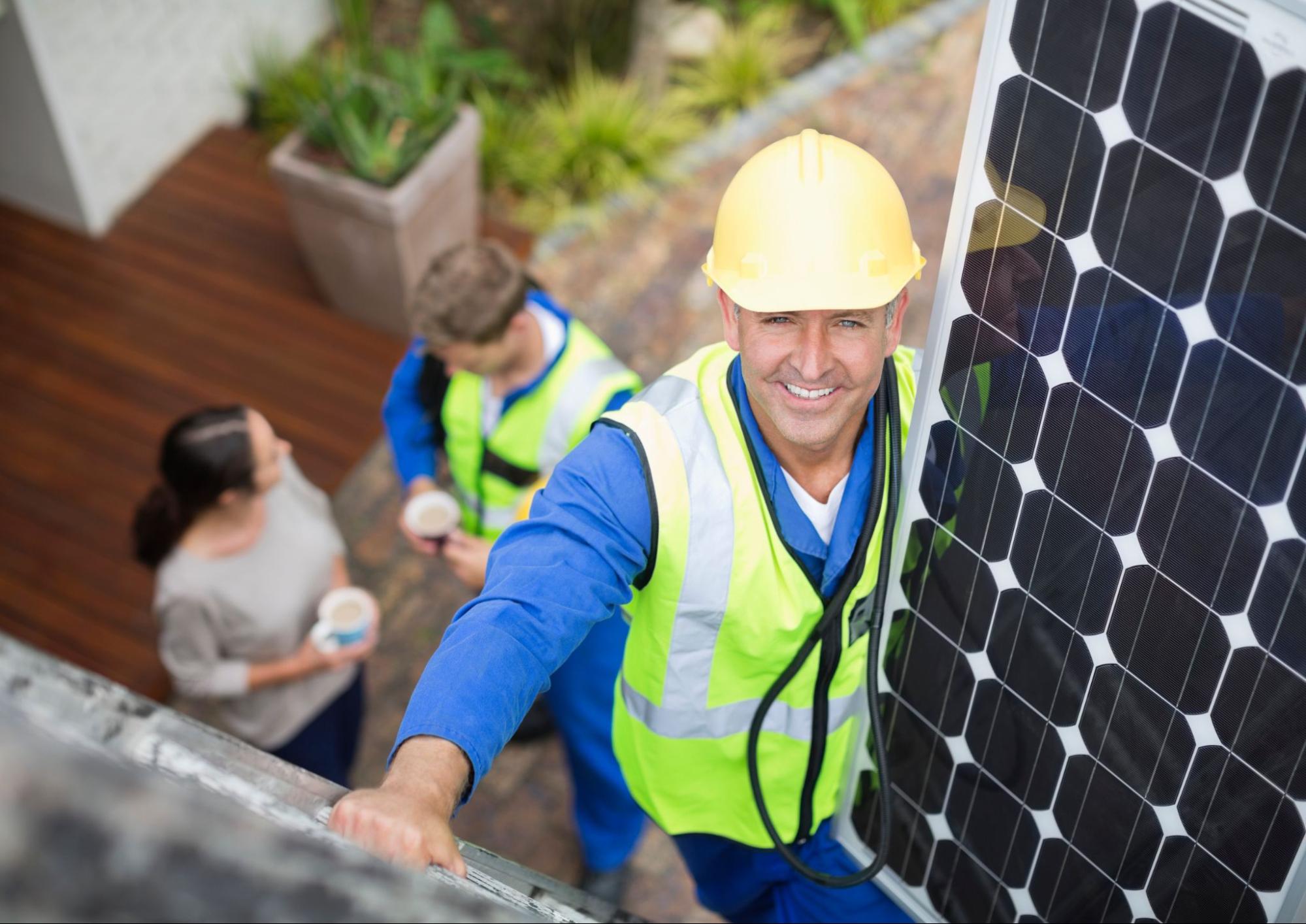
Most solar installations require drilling through your roof for mounting equipment to attach to your rafters. When properly done with gaskets or sealants, solar installations do not cause leaks or roof damage.
Before the installation, all roofs must be inspected for age, damage and integrity. Installers care about your roof and want to provide a high-quality system for decades. Solar panels can last for 25-30 years or more, meaning the quality of your roof is important. Sometimes after inspection, homeowners may need repairs or a new roof.
Solar panels can even be somewhat protective over your roof, shielding it from weather. Solar panels cover your roof which can protect it against damage from direct sunlight, rain or hail.
MYTH: Solar panels can’t be recycled
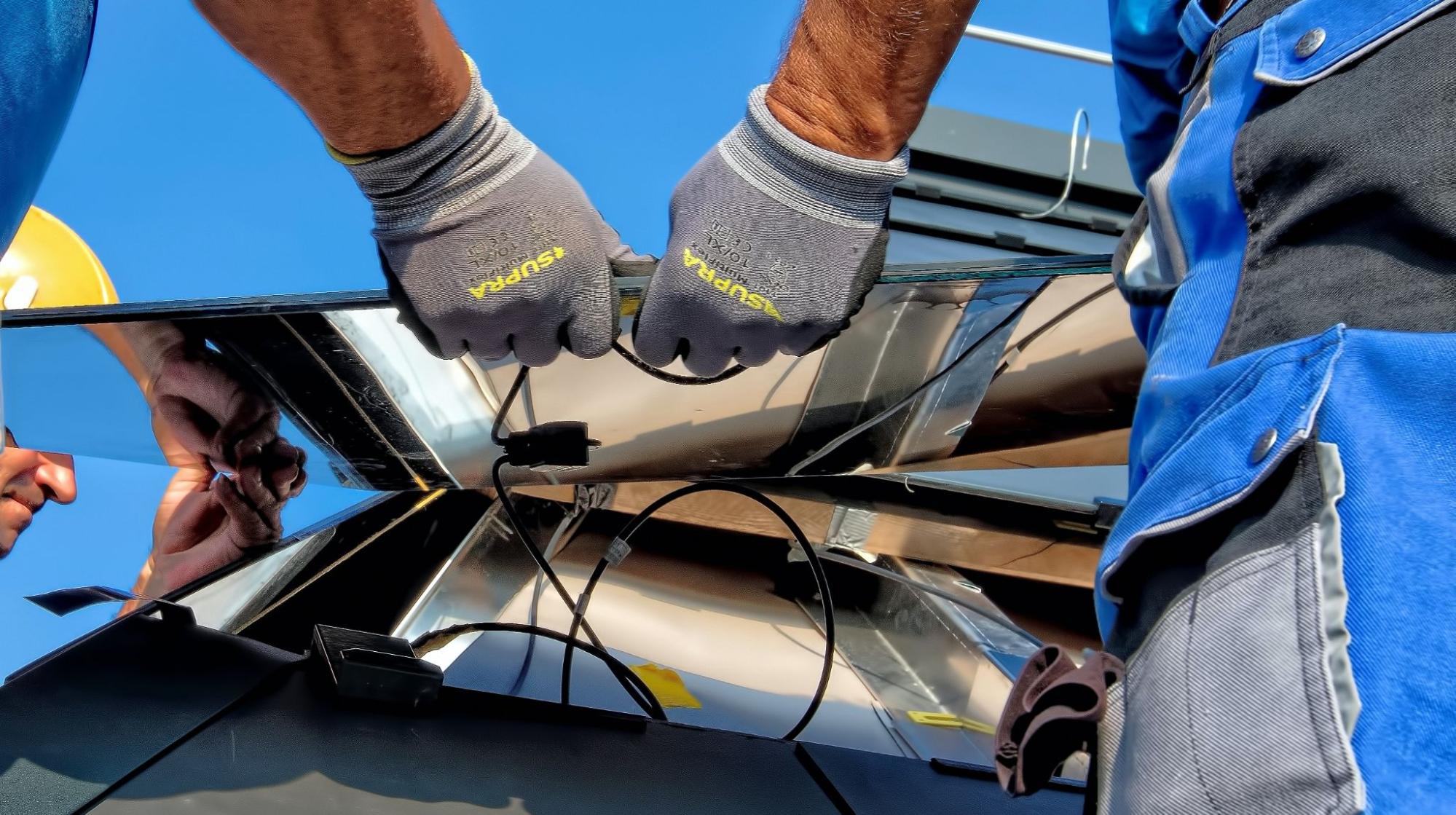
Several companies now specialize in the recycling of solar panels, providing an essential service for managing the growing volume of retired or damaged panels. Governments and organizations have also begun implementing regulations and initiatives to encourage the recycling of solar panels, ensuring that these renewable energy devices remain environmentally sustainable.
MYTH: Solar can’t work in cloudy, rainy or cold weather
To make the most of solar panels in such conditions, homeowners can install extra panels, use battery storage for surplus energy and ensure regular panel maintenance. Optimizing the panel angle for seasonal changes is also beneficial along with selecting high-efficiency panels for enhanced performance under limited sunlight.
Solar panels may not produce their maximum output during adverse weather but remain an eco-friendly energy source throughout the year. Their capacity to generate electricity makes them a practical and sustainable choice for homeowners seeking to reduce energy costs.
MYTH: Solar doesn’t work in northern climates

Northern climates that experience shorter days and less intense sunlight during the winter can see reduced energy production during this time. However, solar panels are designed to capture daylight even in low-light conditions. During the longer, sunnier days of summer — these systems can produce surplus energy, which can be stored or fed back into the grid.
Residential solar is a viable and eco-friendly option in the northern U.S. They can help reduce energy costs and environmental impact, offering a sustainable and economical solution for homeowners in these areas.
MYTH: The government will give you free solar panels
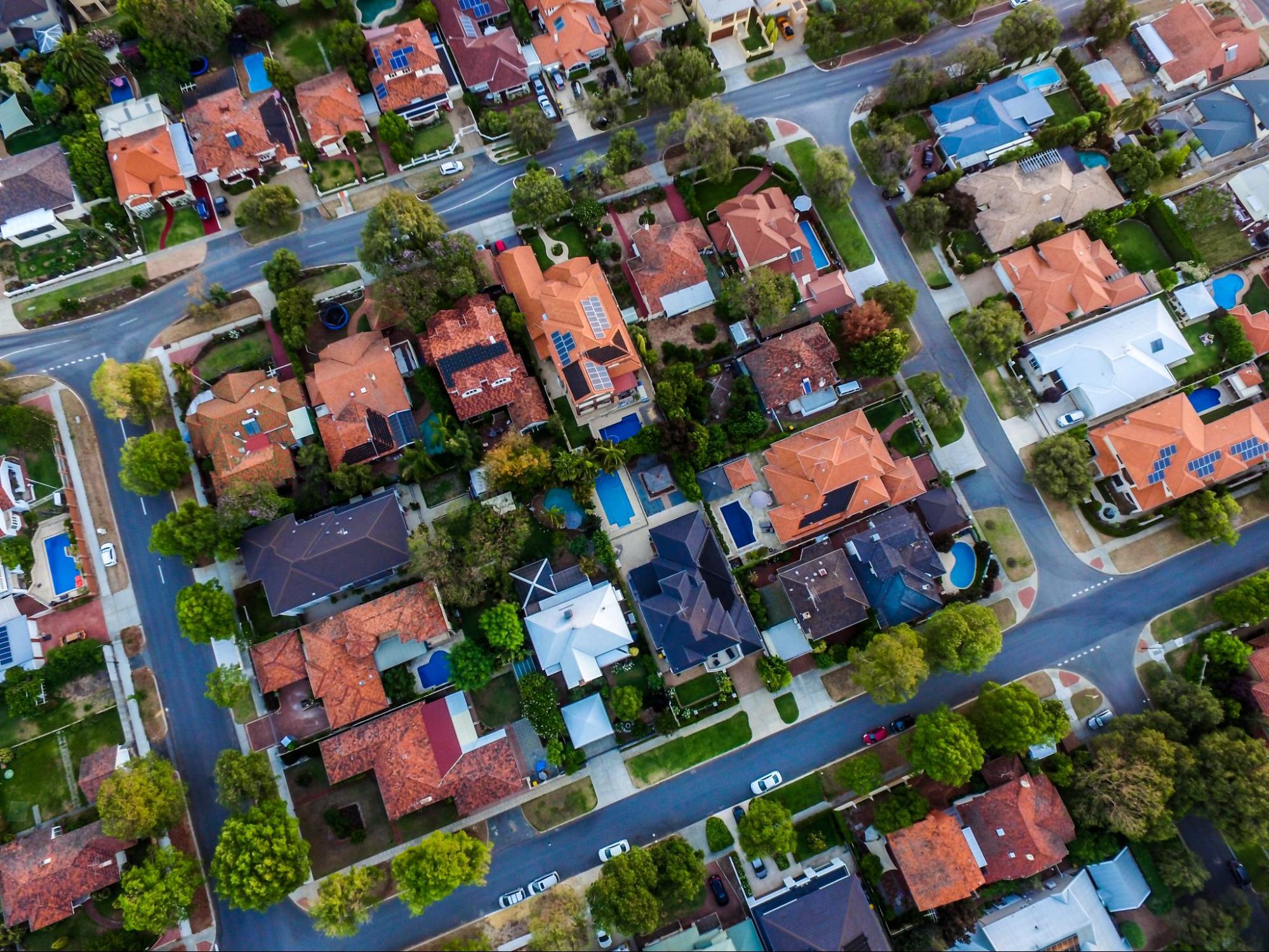
The most significant solar incentive, offered to all American homeowners, is the solar Federal Investment Tax Credit. The solar ITC equals 30% of the costs of a new, qualified clean energy system installed between 2022-2032. Meaning, 30% of the cost of your panels, inverters, storage battery and installation costs can be reduced from your overall taxes.
MYTH: Going solar means going off the grid
Many households choose to go solar to reduce their utility bills by supplementing grid power with solar power. You don’t need to go off-grid to see solar savings. For example, if you bought an electric vehicle and want to mitigate the increased energy usage, a solar system can keep your utility costs down.
Off-grid systems are typically for mobile homes or structures with minimal energy needs. Additionally, off-grid systems are limited by the battery storage capacity available — which can be expensive.
How Enact can help you get solar and storage
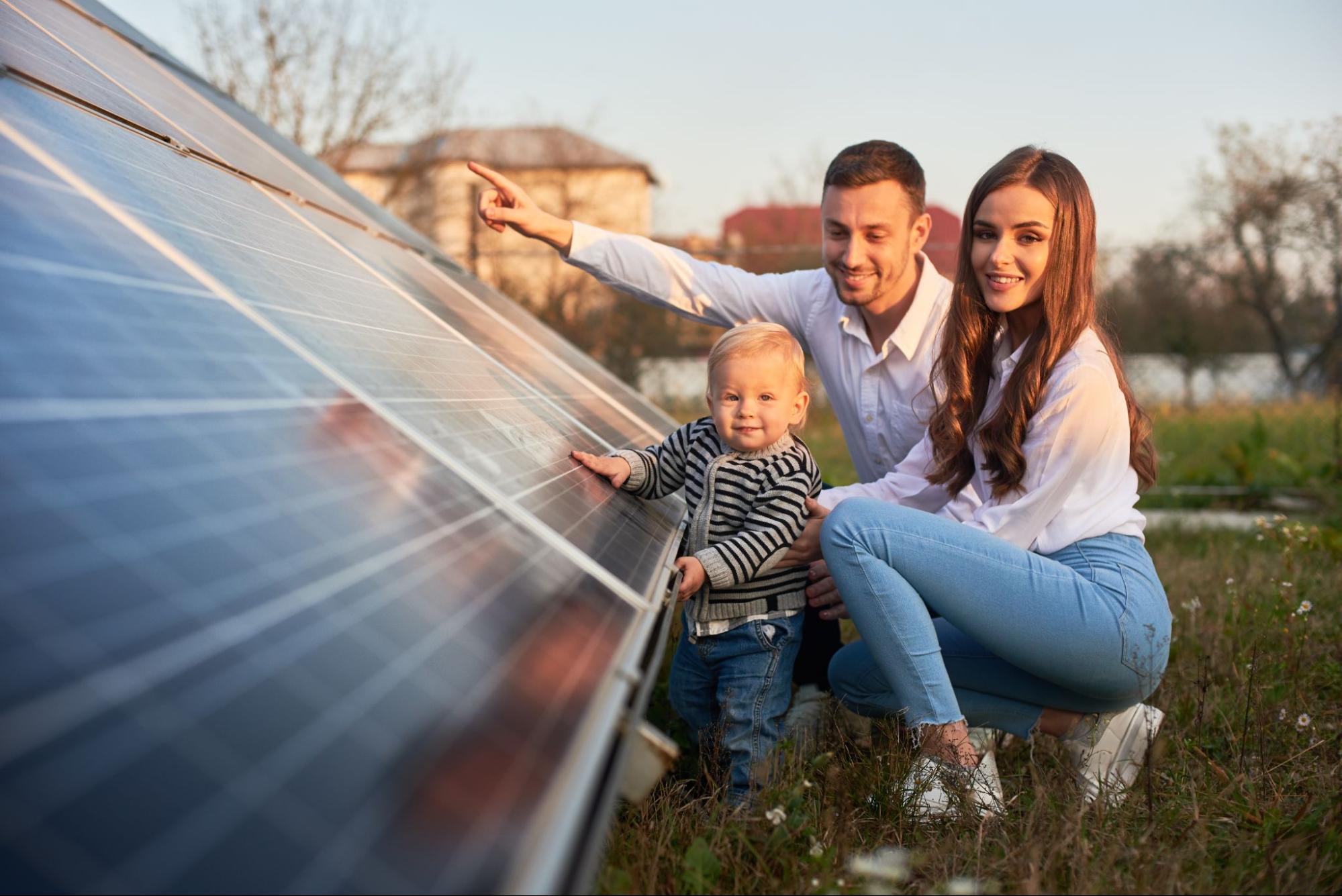
Whether you want to save money or live a more sustainable life, Enact can help you every step of the way. After our home energy advisors create the perfect solar system for your home, we coordinate the entire process with a top local solar installer in your area.
Through the Enact platform, you can see every step of the installation and permitting schedule. Afterward, the Enact Home solar monitoring platform can help you get the most out of your investment and help you understand its performance.
Our customers have access to hundreds of solar equipment and financing options, unlike a traditional installer. You can choose from a wide array of solar panel, inverter and storage battery brands.
If you’re interested in getting a free custom quote or have any questions, schedule a free consultation with our energy experts. We’d love to help you start your solar journey to savings and sustainability.
How can a solar panel system benefit your home
Benefit Number 1: Saving Money
Benefit Number 2: Sustainability
Benefit Number 3: Energy Independence
Benefit Number 4: Energy Security
Home solar power systems can be accompanied by battery storage options. While solar panels alone can’t power your home in an outage (unless you’re off the grid), storage batteries can help keep the lights on. Battery storage provides homeowners with energy security during power outages, ensuring critical appliances and systems continue to function.

